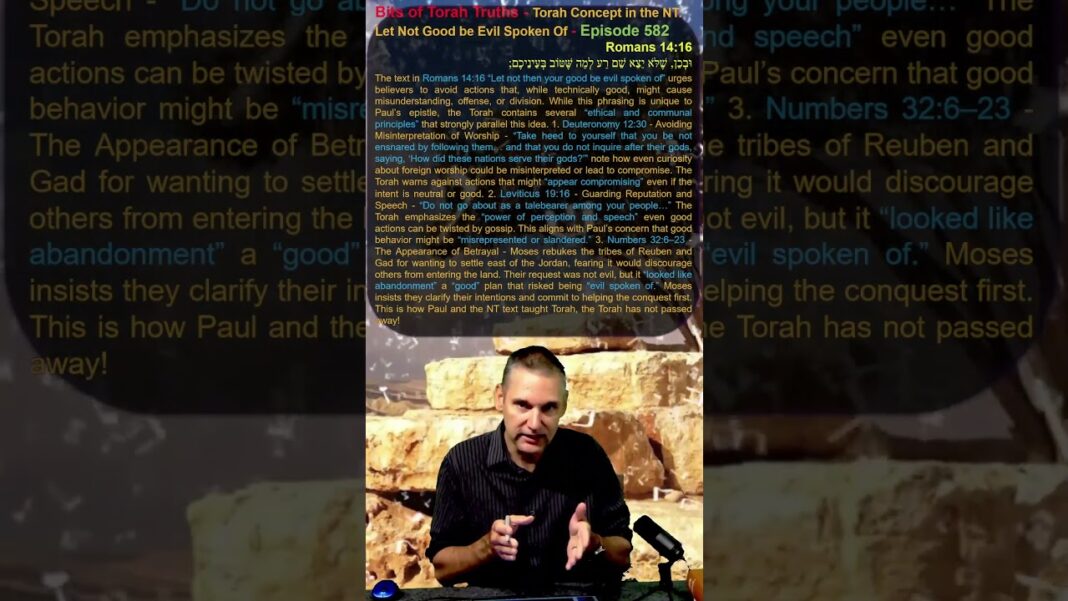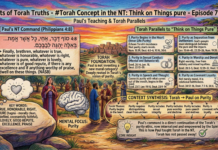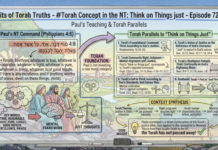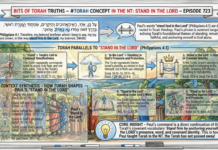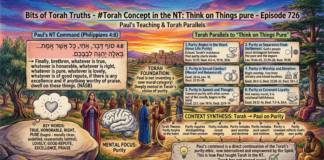Bits of Torah Truths – Torah Concept in the NT: Let Not Good be Evil Spoken Of – Episode 582
Romans 14:16
וּבְכֵן, שֶׁלֹּא יֵצֵא שֵׁם רַע לְמַה שֶּׁטּוֹב בְּעֵינֵיכֶם;
#torah #torahwisdom #torahtruth #torahforlife #torah4you #torahtruth
Romans 14:16
14:16 Therefore do not let what is for you a good thing be spoken of as evil; (NASB)
https://www.matsati.com/index.php/category/bits-of-torah-truths/
The text in Romans 14:16 “Let not then your good be evil spoken of” urges believers to avoid actions that, while technically good, might cause misunderstanding, offense, or division. While this phrasing is unique to Paul’s epistle, the Torah contains several “ethical and communal principles” that strongly parallel this idea. 1. Deuteronomy 12:30 – Avoiding Misinterpretation of Worship – “Take heed to yourself that you be not ensnared by following them… and that you do not inquire after their gods, saying, ‘How did these nations serve their gods?’” note how even curiosity about foreign worship could be misinterpreted or lead to compromise. The Torah warns against actions that might “appear compromising” even if the intent is neutral or good. 2. Leviticus 19:16 – Guarding Reputation and Speech – “Do not go about as a talebearer among your people…” The Torah emphasizes the “power of perception and speech” even good actions can be twisted by gossip. This aligns with Paul’s concern that good behavior might be “misrepresented or slandered.” 3. Numbers 32:6–23 – The Appearance of Betrayal – Moses rebukes the tribes of Reuben and Gad for wanting to settle east of the Jordan, fearing it would discourage others from entering the land. Their request was not evil, but it “looked like abandonment” a “good” plan that risked being “evil spoken of.” Moses insists they clarify their intentions and commit to helping the conquest first. This is how Paul and the NT text taught Torah, the Torah has not passed away!
